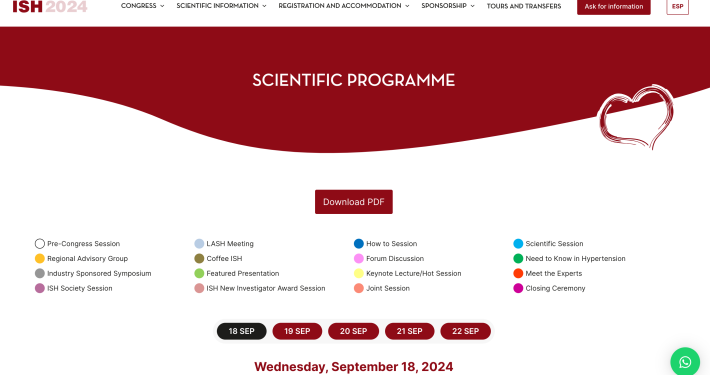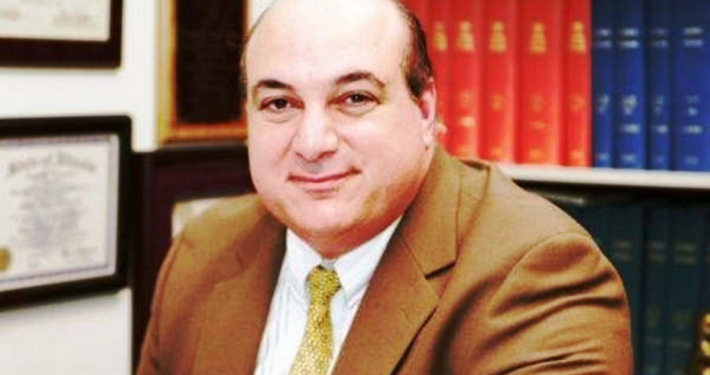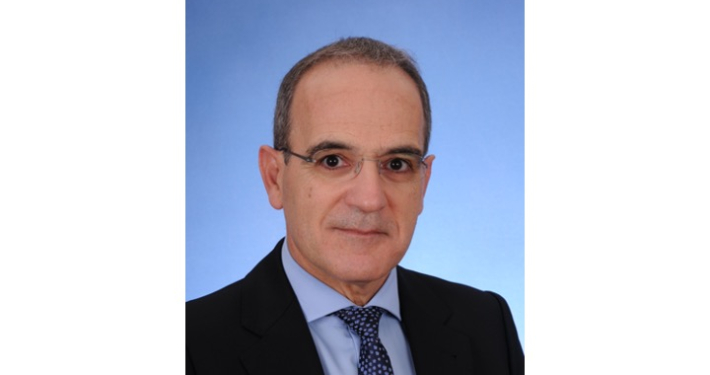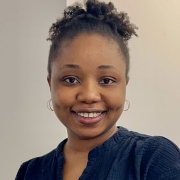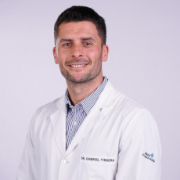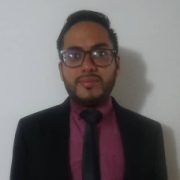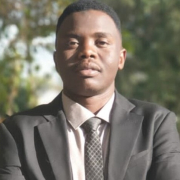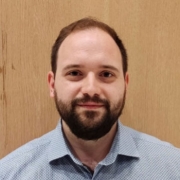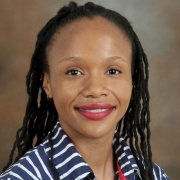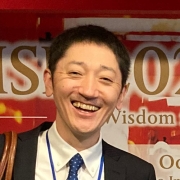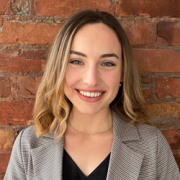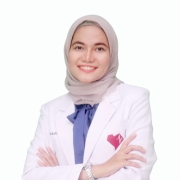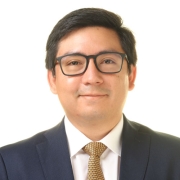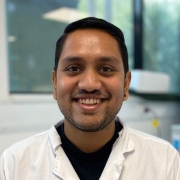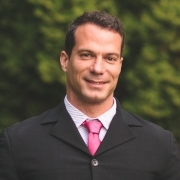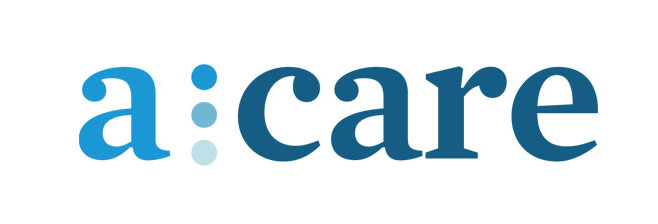How did you become interested in research relating to Hypertension?
I became interested in hypertension when I was working as coordinator of programs of health promotion and prevention of diseases in a health care organization (HCO) that served small and mainly rural municipalities in Colombia. As part of my work there, I had to coordinate the program for the control of hypertension among the affiliated to the HCO. Years later, after earning my master degree in public health I worked in research to address the prevention of cardiovascular disease and its main risk factors. Because my interest in hypertension, my doctoral dissertation focused on examining social disparities in hypertension in Colombia using a mixed-methods approach.
Describe your research & the program/lab (info of your supervisor) that you are in?
In my current research I am interested in extending current knowledge on social disparities in hypertension in Colombia. One of my projects is aimed to examine social determinants of the control of hypertension in three Colombian cities to inform public health interventions. In other project, I´m working in a middle-sized city in Colombia to understand and address urban living conditions that influence hypertension risk and disparities. In this latter project we applied principles of Community-Based Participatory Research. Additionally, I am working on understanding socioeconomic patterning of mortality for hypertension in Colombia in the last decades.
What do you consider to be your substantial scientific contribution so far (provide Pubmed PMID if possible)?
So far, my contribution is related to extend knowledge of the social patterning of hypertension in Colombia and applied a social determinant approach for addressing this problem at the local level. Part of this work has been described in the following publications:
- Lucumi DI, Schulz AJ, Torres-Gil JE, Gonzales L, Ramirez K. Establishing a local coalition for addressing social determinants of hypertension in Quibdo (Colombia): a description and reflection on the process. Glob Health Promot. 2018:1757975918774784. PMID: 29957126
- Lucumi DI, Schulz AJ, Roux AVD, Grogan-Kaylor A. Income inequality and high blood pressure in Colombia: a multilevel analysis. Cad Saude Publica. 2017;33(11):e00172316. PMID: 29166488
- Lucumi DI, LeBron AMW, Schulz AJ, Mentz G. Social patterning of cardiovascular and metabolic risk in Colombian adults. Ethn Health. 2017;22(4):389-401. PMID: 27829294
- Lucumi DI, Schulz AJ, Israel BA. Local Actors’ Frames of the Role of Living Conditions in Shaping Hypertension Risk and Disparities in a Colombian Municipality. J Urban Health. 2016;93(2):345-63. PMID: 26988557
- Lucumi D. Disparities in Hypertension in Colombia: A Mixed-Methods-Study. Ann Arbor (MI): University of Michigan; 2014. https://deepblue.lib.umich.edu/handle/2027.42/107278
What is your favourite manuscript from a lab other than your own (provide Pubmed PMID if possible)?
My favorite manuscripts about hypertension are:
- Colhoun HM, Hemingway H, Poulter NR. Socio-economic Status and Blood Pressure: An Overview Analysis. J Hum Hypertens,. 1998;12(2):91-110. PMID: 9504351
- Cooper R, Rotimi C, Ataman S, McGee D, Osotimehin B, Kadiri S, et al. The Prevalence of Hypertension in Seven Populations of West African Origin. Am J Public Health. 1997;87(2):160-8. PMID: 9103091
What facilities are essential for your research?
Given the type of research I conduct, an essential aspect for me is doing field work, in which I have opportunities for both talking with people from different backgrounds and analyzing the urban living conditions in which they live. In addition, is also important to have access to data set with statistical information about hypertension and its related factors, and software and a computer with good capabilities for supporting quantitative and qualitative analysis.
Where do your research strengths lie? Why? What are your research weaknesses? How will you improve?
The main strengths of my research are that it is theoretically supported and it usually includes simultaneously quantitative and qualitative methods. In addition, are designed to inform public health interventions.
One of the weakness of my current work is the lack of analysis of the trends in the socioeconomic patterns of hypertension in Colombia. This limitation is due to the lack of recent information on prevalence hypertension and socioeconomic factors with a national coverage. Funding limitations also have constrained the generation of evidence for the prevention of hypertension in marginalized populations, as well as the implementation and evaluation of community-based interventions.
To address some limitations with my colleagues we are permanently looking for data we can use for the work we are doing. Also, we apply to different funding opportunities to conduct studies at local levels. Finally, we adopted a step by step approach in order to translate evidence into public health interventions.
Describe your unforgettable (proudest) moment in science, and the most challenging situation that you have had to overcome (lessons learnt) so far?
Without doubt the proudest, but at the same time more challenging, moment in science for me has been the work on my doctoral dissertation. Working on my dissertation I learned a lot trying to understand the literature, exchanging ideas with faculty and other doctoral students, talking with local actors, conducting and interpreting information, and defending all the work I did when I had my thesis completed.
At which conference did you first present? How was your experience?
My first presentation about something specific to the work I was doing currently on hypertension was at the meeting of American Public Health Association in 2013. I enjoyed the opportunity of presenting part of my dissertation at time and receiving valuable comments and questions about it.
What upcoming conferences will you be attending, and what is the furthest distance that you have traveled for a conference?
Next November I will be attending the meeting of the American Public Health Association in San Diego.
The furthest distance I have traveled to attend a conference was from Bogotá (Colombia) to Manchester (UK).
How did you learn about ISH/NIN and its activities?
I learned about ISH/NIN through a colleague working at Henry Ford Health System
What area(s) do you wish to specialize in the future?
I want to continue working on the social aspects related to hypertension at the national and local levels in Colombia. Also, I want to know work more on public health interventions for addressing prevention, control, and inequalities in hypertension.
Who is your role model in Science? Why?
Professor Amy Schulz, who was my academic adviser during the doctoral program and the chair of my doctoral committee. Dr Schulz has played on instrumental role in my academic training and current work.
What are your scientific goals? Advise for talented emerging scientists?
I want to:
- Advance in my research on social examining aspects that influence hypertension, particularly in the most marginalized areas.
- Develop evidence-based public health interventions that fit with the cultural and contextual characteristics of the places where these interventions will be implemented.
- Continue the training of a cadre of young researchers interested in addressing hypertension from a social perspective.

